Want to know how to grow your savings?
Only you can decide for yourself how to grow your savings and save money effectively. But how do you know which method would suit you best? Once you put your money somewhere, how long should it stay there? And how does your age and stage of life matter when it comes to where you save or invest? There are a lot of things you may be unsure about. Here are some things that can hopefully help you decide what choice about saving you want to make.
Which Savings and Growth Stage Are You In?
Your needs and priorities tend to change as your life does. This is particularly true of money. For most people, savings goals change throughout their lives. early in your career, you may not have had very much money left once all your bills were paid. You might’ve focused on growing your basics saving account, in case of emergencies. But once your income increases, you may have more choices. Later in life, when you’re looking to retire, your goals could shift again. At that point, many people begin looking for ways to protect the money that they’ve worked hard to save. Deciding how to grow your savings and protect that money for yourself and your family could be impacted by your stage of life.
Tips For An Early Stage Saver
Not everyone has the same income, lifestyle, or expenses, obviously. But there are a few basic ideas that can help many people in the startup phase of savings. Firstly, make a budget. Sounds simple enough, sure. But many people don’t have one. To make a budget, start by making a list of your essential expenses. Must-haves, like food, housing, and utilities. Next, write down any additional monthly required expenses such as car insurance, medical co-pays or expenses, household items, clothing, etc. Then, mark down any monthly debt payments you may have, like cars, student loans, or personal loans. (Note: If you have any expenses that are paid quarterly or annually, do the math to convert them into monthly amounts. For example, a $600 quarterly payment would be a $200 monthly bill, because there are three months in a quarter and 600/3 is 200.)
Now, once you have a list of all your monthly expenses, it’s time to list your income. write down the total you get each month, using your net pay (that’s after taxes and other withdrawals.) If you’re self-employed, or if your income tends to go up and down each month, base your budget on your lower average income. This way, you can save any “extra” for the months when your income is below average. Lastly, subtract your expenses from your income. What remains is your available savings.
Once you’ve made a budget and know your available savings amount, it’s time to build up your basic emergency account. Most people use regular savings accounts for this, but some choose a money market account with checking writing privileges. The idea is to have enough money to deal with emergencies without ending up going into debt. Now that your budget is complete, and your basic savings goals are met, you can begin saving for your future.
How to Grow Your Savings if You’re a Mid-Stage Saver
In this stage of financial savings, people tend to begin investing and saving for retirement. Typically, when using accounts like IRAs and 401(K)s, mid-stage earners mainly focus on trying to grow their money. It’s important to make sure you’re working with the right type of financial advisor when deciding where to invest your money because there are so many choices to make. Additionally, some people choose to learn more about insurance products during this time, such as life or disability insurance. These products could help you protect the household income via death benefit in the event that the main income earner passes away. For insurance products, you should seek out a licensed insurance professional.
Mid-stage savings typically involve investing for the long term. In mid-stage, most people feel that they have time on their side. Although the stock market does carry risk and sees many ups and downs, many people decide to deal with the risks of the market during this stage. Their goal is to have long-term overall growth. this is, of course, not completely guaranteed. The key is to have a qualified investment advisor on your side, to understand the risks, and to make the right strategy. Additionally, you should make sure you’re sticking to your budget and maintaining your emergency savings.
When Retirement is In Sight
Once your money has reached a certain dollar amount, you might begin thinking about changing your savings goals so as to prepare for retirement. For most people, this happens around 5 – 10 years before they plan to retire. The ups and downs of the market might have been acceptable during your earlier working years, but you may, like many pre-retirees, begin to think more about protecting your money from market dips as you near retirement.
Certain annuities and life insurance products could be options to consider as you approach retirement. Fixed indexed annuities, for example, could offer you the chance to earn a reasonable rate of return, while still having protection of principal. Additionally, you may choose to have your annuity provide you with income once you reach retirement. Be sure to speak with a qualified and licensed insurance advisor to find out more about your annuity and life insurance options.
How to Grow Your Savings In Retirement
Your savings goals will likely change again once you’re actually in retirement. Many retirees want to make sure their money lasts them the rest of their life. Additionally, you may want to learn about options for leaving a legacy. This could include ways to pass on your money to your beneficiary or beneficiaries, and ideas for how to make sure your spouse still has a retirement income should you pass away before they do. Although budgeting and maintaining liquid assets is still important at this point, you might look to change strategies in order to protect your money from losses.
One way to get informed about how to grow your savings in retirement is to attend an educational seminar. Here at Tower Bridge Financial, we offer complimentary dinner seminars several times a year. Please contact us to register for one of these events, so that we can hopefully educate you about your different savings options. We can also discuss how the stock market may impact your current accounts, and how you can protect your money.
Contact us today to make an appointment or attend one of our educational seminars.


